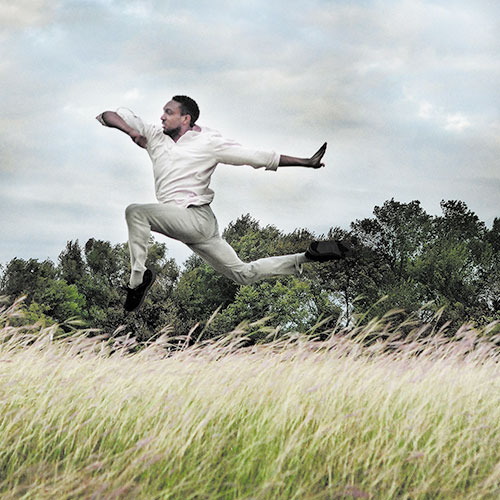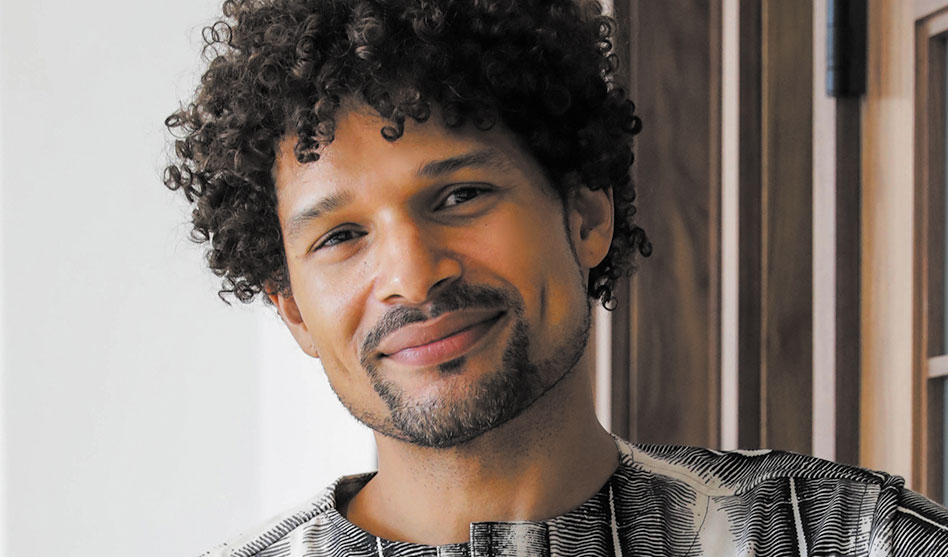Choreographer Adam McKinney tackles prejudice in Bruce Wood’s virtual “Hope”
Rich Lopez | Contributing Writer
richlopezwrites@gmail.com
In today’s strange days, Bruce Wood Dance won’t be kicking off its 11th season on stage. But instead of COVID-19 putting them out of commission, the company will move forward, launching “HOPE | A Virtual Dance Experience” for 78 hours on its Vimeo channel in December. The event combines seven original dance films celebrating the strength of the human spirit.
It’s a new day for Bruce Wood.
“Bruce Wood Dance has moved with the challenges of the day by advancing with innovation and adaptation,” Artistic Director Joy Bollinger said in a press release. “With the dance films we have created, we seek to share stories of overcoming, lift Black voices and shed light on one of the most vital characteristics of the human spirit: Hope.
“Bruce Wood Dance offers this virtual performance to you as a gift of healing and a declaration of hope as we move forward together.”
The show features the choreography of Bollinger and artistic advisor Kimi Nikaidoh along with guest choreographers Jonathan Campbell and Adam McKinney.

“Promise Me You’ll Sing My Song” is Adam McKinney’s tribute to, Reuben Johnson, a Black man lynched in Dallas Couinty.
Among the premieres is McKinney’s tribute to Reuben Johnson, “Promise Me You’ll Sing My Song,” a piece based on the lynching of Johnson near Mountain Creek Lake in Dallas County. Beyond the tragedy, McKinney says his work means to inspire.
“Too often, histories of violence against Black people are forgotten then normalized. My goal with this work is not to re-traumatize; rather, it is to inspire thoughtful reflection and invite actionable responses to anti–Black racism,” McKinney said in the release,
McKinney, an assistant professor of dance at Texas Christian University, described the piece also as research. For him, “Promise” not only tells a story but offers a space for healing.
“I think dance in and of itself has the capacity to be a natural process of healing,” he said by phone, “Our emotions are more available to us. In that way, I feel dance has the capacity for telling the truth; telling stories not often told.”
In the book Hangings and Lynchings in Dallas County, Texas 1853–1920, author Terry Baker described Johnson as a man of principle who refused to provide a false alibi for a thief and was killed for it. The murderers were never brought to justice.
To this day, the murderers of Black people are often never brought to justice. For McKinney, this reality was a double-edged sword.
“I began to think of the murder of black trans women and gay black men,” he explained. “My hope is that viewers are inspired to learn this history but also make these historical connections. As a gay person, I cannot turn my gaze away from the intersection of racism and homophobia.”
Each piece in the program is its own short film, so for “HOPE,” McKinney was able to tell the story cinematically, with music by local artist Najeeb Sabour. Thus, he returned to the area in which Johnson was killed.
“We went to Mountain Creek Park, and while it wasn’t the exact spot, the site informed our artistic choices. I think space holds history, too, as do our bodies,” he said.
While this piece focuses on anti-racism and history, McKinney has brought specific queerness to the stage before, particularly with 2018’s “Queer Dance: Falling with a Freak Technique” based on a chapter from the book Queer Dance. Written by Anna Martine Whitehead, the chapter explores the intersection between blackness and queer culture. McKinney added to that in his piece that we, as gay people, are always telling a story, even to when we’re bopping to bangers on the dance floor.
“I felt it is important to identify what queer dance is and the connections to our own bodies which we all hold stories in,” he said. “What stories are we telling in the open or not in the open.”
A two-man dance titled “DISconnection” (although McKinney doesn’t recall why he named it such) is available on YouTube. In that piece, McKinney explored the friendship dynamic between a gay man and a straight man.
But for now, the past is present for McKinney with “Promise,” where he mixes tragedy with creation for a complete piece.
“My work as an artist attempts to use creative, choreographic processes to fill in the holes of history,” he said. “I have delighted in working with Black artists — dancer Matthew Roberts, filmmakers Jirard and Pockett Brown and Najeeb Sabour — on this work. Something on which we have been focusing is leaving space for the spirit to come into the process of this artistic collaboration, allowing for the space and time for the work to unfold before us with clarity and intent.”
“HOPE” will also include the premiere of “Life Interrupted,” choreographed by Bollinger and based on COVID-19 experiences, as well as works by Kimi Nikaidoh and Jonathan Campbell. The show will also feature the seldom–seen inaugural Bruce Wood Dance Project work, “Know Thyself.”
The show will screen online Dec. 4-7 at brucewooddance.vhx.tv. Tickets are $30.













